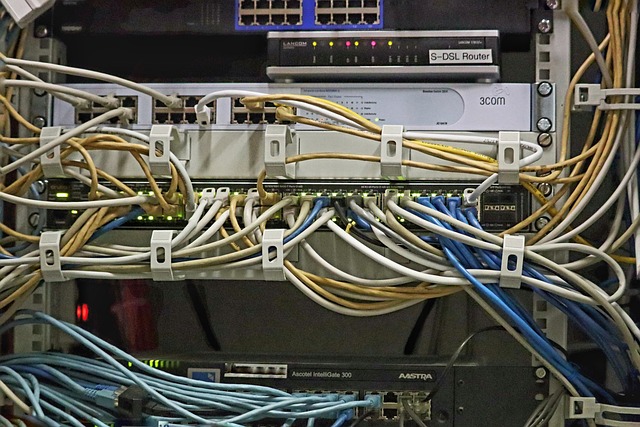# The Role of AI Technology in Shaping Tomorrow’s Innovations and Enhancing Everyday Experiences
Artificial Intelligence (AI) has emerged as a transformative force across various sectors, fundamentally altering how we interact with technology and each other. As we delve into the future, the implications of AI technology are becoming increasingly profound, driving innovations that promise to enhance our daily experiences. This article explores the multifaceted role of AI in shaping tomorrow’s innovations and improving everyday life.
## Revolutionizing Industries with AI Innovations
Industries worldwide are witnessing a seismic shift due to the integration of AI technologies. Manufacturing, for instance, is experiencing a renaissance through automation and predictive analytics. By leveraging AI, companies can optimize their supply chains, reduce downtime, and improve product quality. Smart factories equipped with AI-driven robots can adapt to changing demands in real-time, thereby enhancing efficiency and reducing operational costs.
Healthcare is another domain where AI is making significant strides. The use of machine learning algorithms to analyze medical data has led to breakthroughs in diagnostics and personalized medicine. For example, AI can process vast amounts of patient data to identify patterns that may not be immediately visible to human practitioners. This capability not only speeds up the diagnostic process but also enhances accuracy, ultimately leading to better patient outcomes. Furthermore, AI-driven applications like virtual health assistants are transforming patient care by providing real-time support and information, making healthcare more accessible.
In the realm of finance, AI technologies are reshaping how financial institutions operate. Algorithms are now capable of analyzing market trends and consumer behavior, enabling banks to offer personalized financial products. Fraud detection systems powered by AI can identify suspicious transactions in real-time, mitigating risks and protecting consumers. As these innovations continue to evolve, they promise to streamline operations and enhance customer experiences across various sectors.
## Enhancing Everyday Experiences through AI Integration
Beyond industrial applications, AI technology is increasingly embedded in our daily lives, enhancing how we interact with the world around us. Smart home devices, for example, utilize AI to create personalized environments that cater to individual preferences. From adjusting lighting and temperature to managing security systems, these devices learn user habits and automate processes, leading to increased comfort and efficiency.
Transportation is another area where AI is making a significant impact. The advent of autonomous vehicles represents a paradigm shift in how we think about mobility. AI systems enable cars to navigate complex environments, making real-time decisions to ensure passenger safety. Moreover, ride-sharing platforms use AI to optimize routes and match drivers with passengers, reducing wait times and improving overall service efficiency. As these technologies mature, they promise to reshape urban landscapes and reduce traffic congestion.
Additionally, AI’s role in enhancing communication cannot be overlooked. Natural language processing (NLP) has advanced to a point where virtual assistants can understand and respond to human speech with remarkable accuracy. This development is not only transforming customer service interactions but also enabling more seamless communication across languages and cultures. AI-driven translation tools are breaking down language barriers, fostering global collaboration and understanding.
## The Ethical Considerations of AI Advancements
While the benefits of AI technology are substantial, it is crucial to address the ethical considerations that accompany its rapid advancement. Concerns about data privacy and security have become paramount as AI systems increasingly rely on vast amounts of personal information to function effectively. Ensuring that data is collected and used responsibly is essential to maintaining public trust in AI technologies.
Moreover, the potential for job displacement due to automation raises significant social and economic questions. As AI systems take over routine tasks, there is a pressing need for workforce reskilling and upskilling initiatives. Preparing individuals for the jobs of the future will require collaboration between governments, educational institutions, and industries to foster a workforce that can thrive in an AI-driven economy.
Furthermore, the issue of algorithmic bias is a critical ethical consideration. AI systems are only as good as the data they are trained on, and if that data reflects existing biases, the outcomes can perpetuate inequality. Ensuring fairness and transparency in AI decision-making processes is essential to prevent discrimination and promote inclusivity.
## Conclusion: Embracing the Future with AI
In conclusion, AI technology is poised to play a pivotal role in shaping tomorrow’s innovations and enhancing everyday experiences. From revolutionizing industries to transforming daily interactions, the potential applications of AI are vast and varied. As we embrace this technological evolution, it is imperative to address the ethical challenges that accompany it. By fostering responsible AI practices and investing in education and workforce development, we can harness the power of AI to create a future that is not only innovative but also equitable and inclusive.
The journey toward a future enriched by AI is just beginning. As we stand on the brink of this exciting frontier, it is our collective responsibility to ensure that the advancements we make benefit society as a whole. By prioritizing ethical considerations and embracing the transformative potential of AI, we can shape a tomorrow that enhances our everyday experiences while driving meaningful innovations across all sectors.











